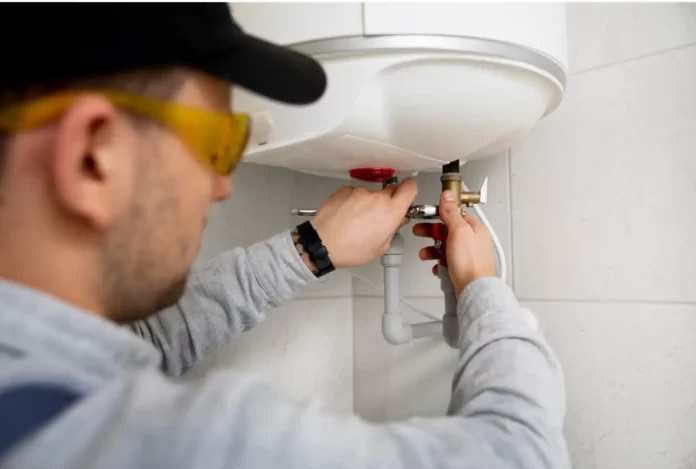Hot water systems are a cornerstone of our daily lives, providing the invaluable convenience of warm showers, clean dishes, and more. Yet, these systems of modern living have a finite lifespan, and as they age, they can exhibit signs of wear and tear that, if overlooked, might disrupt your daily routines and lead to costly repairs. In this extensive and technical guide, we will delve deeply into these critical signs, ensuring you are thoroughly informed about when it’s time to enlist the services of seasoned professionals in the hot water systems industry.
Signs of Declining Efficiency
One of the earliest and most obvious indicators that your hot water system is approaching the end of its functional life is a noticeable decrease in its efficiency. This reduction in efficiency may manifest as prolonged heating times or hot water running out more quickly than in the past. Although these efficiency declines might initially appear subtle, they can compound over time, imposing a noticeable inconvenience on your daily life. If you find yourself contending with a hot water system that struggles to provide consistent and timely hot water, it’s a clear and unambiguous indication that a replacement is a matter of technical necessity.
Unusual Noises and Water Discoloration
As hot water systems age, they often begin to generate unusual noises and water quality problems that serve as technical indicators of underlying issues. These audible peculiarities can include sounds such as banging, popping, or hissing, usually attributed to sediment buildup within the tank or the expansion and contraction of heating elements. Furthermore, the emergence of rusty or discolored water when you utilize hot water taps is typically a telltale sign of internal corrosion or sediment accumulation. Beyond being a quality-of-life concern, these issues can point to internal deterioration within your system, warranting prompt professional assessment and potential replacement.
Leakage and Moisture Problems
Perhaps the most conspicuous and technically alarming of all signs is the presence of water leakage or moisture around your hot water system. Leaks can stem from a multitude of issues, including corrosion, cracks, or fluctuations in pressure within the tank. Neglecting these issues can escalate to dire consequences, ranging from water damage to your property to the abrupt failure of your system. Professionals well-versed in hot water systems possess the knowledge and tools to conduct a comprehensive technical assessment and provide the requisite solutions. The moment you detect any manifestations of moisture or leaks in the vicinity of your hot water system, prompt technical intervention becomes imperative.
Temperature Inconsistencies
Consistently maintaining water temperature is a sign of a well-performing hot water system. This technical problem, which manifests as temperature swings, may have a number of underlying reasons, such as a broken thermostat, silt buildup, or faulty heating elements. These temperature irregularities not only disrupt your daily routines but can also translate into increased energy consumption, leading to higher utility bills. In the face of a hot water system that fails to uphold consistent temperature standards, it is advisable to seek the counsel of experts specializing in hot water systems for a thorough technical evaluation.
Age and Technological Obsolescence
Age serves as a crucial factor in gauging the viability of your hot water system. Conventional hot water heaters typically boast a service life ranging from 10 to 15 years, contingent upon usage patterns and diligent maintenance. As your system approaches or surpasses this age bracket, it may undergo a decline in energy efficiency and lack contemporary technological enhancements, including vital safety features. Embracing the transition to a new, technologically advanced, and energy-efficient model is not merely a matter of convenience; it is a sagacious technical choice. Doing so not only guarantees the reliability of your hot water supply but also facilitates long-term energy savings, contributing to both your well-being and fiscal prudence.
Your hot water system holds a pivotal role in your daily life, and it is imperative to be well-versed in the technical warning signs that signal its impending deterioration. Signs encompassing declining efficiency, unusual noises, temperature fluctuations, leaks, and the age of your system collectively represent a precise technical status of your system, compelling you to consider the necessity of replacement. By promptly seeking the professional counsel and services of experts in hot water systems, you can ensure the continued delivery of dependable and efficient hot water, preserving the seamlessness of your daily routines. The prudent approach is not to wait until a frigid shower or costly property damage compels action; rather, it is to take the technical measures necessary to maintain your hot water system in optimal condition.



















